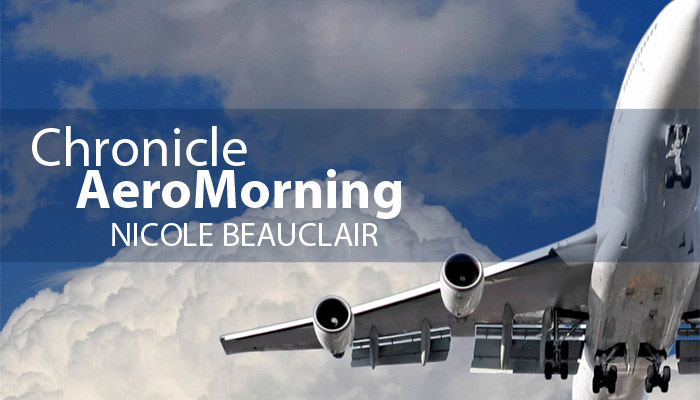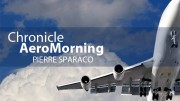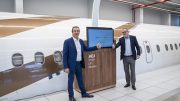Latécoère, still in Toulouse, but not quite French any more
– and incidentally therefore the capital – of the Toulouse aeronautics group Latécoère. Vulture funds, as revealed by Guy Dutheil of Le Monde last October, had their gaze firmly fixed on Latécoère. And they succeeded.
By selling off the debt, which came to €310.2m in late 2014, the leaders of Latécoère – Pierre Gadonneix, Chairman of the Supervisory board, and Frédéric Michelland, Chairman of the Board of directors – consider that if the general assembly ratifies the project, they will have “built up a stable core of long-term shareholders around the Apollo Global Management and Monarch Alternative Capital investment funds, which will become the group’s reference shareholders”. The discussions were carried out at the highest level under the attentive eye of the Minister of the Economy.
How small the financial world is. Frédéric Michelland admitted as much to me when he took up his post in December 2013. He began his career in the New York financial milieu on the trading floor and assured me that the experience he gained at that time was still useful in rapidly making the decisions that were necessary for the Latécoère group. Those ten or so years spent in New York enabled him to build up a network of relations in the business world. Similarly the three founders of Monarch Alternative Capital met when they worked together at the Lazard Frères bank, as indeed did our Minister of the Economy, Emmanuel Macron.
As for Apollo, this was the investment fund that had already entered the capital of many highly reputed metallurgists in the aeronautics world: Aleris, Constellium, Ascometal, Metals USA, etc. to mention but a few.
So what are the intentions of Latécoère’s new shareholders in buying this debt?
Without going into too many financial details, the arrival of Monarch and Apollo will enable the company to boost its capital by €278m, reducing the financial debt by €178m to €100m, contributing €100m in new money and, as already said, constituting a new core of shareholders.
The new money will undoubtedly be used to support its two main customers, Airbus and Boeing, ramp up the production rate of their programmes. Investments will be made to support this rise in production and reconstitute a stock, without which no manufacturer can really deliver on time, etc.
But it is clear that without a drastic industrial plan, Latécoère’s situation will not be healthy for long.
If we consider the remarks of Frédéric Michelland, current Chairman of the Board, soon to become managing director (with Pierre Gadonneix as president), the aim is to refocus the group on strategic activities.
For those in the know, these activities are primarily doors, for which Latécoère has become an essential partner of the main aircraft manufacturers. But there is also the wiring activity, controlled globally by 3 main companies: Latécoère with its subsidiary Latelec, Labinal (Safran) and Fokker (Stork). It would therefore be wise to focus on these activities.
But in that case what would become of the aerostructures and engineering sides?
Fokker-Stork, initially interested, would now appear to be out of the running, attracted more by the wiring. Then there remains Spirit AeroSystems, which is still looking to increase its activities with Airbus in order to balance/diversify its client base, and also Stelia Aerospace, resulting from the merger of two of the Airbus Group subsidiaries, Sogerma and Aerolia.
A convoluted way of building up this major French, if not European, aerostructures pole, which could at last come into its own.
Nicole Beauclair for Aeromorning







Be the first to comment on "Latécoère, still in Toulouse, but not quite French any more"